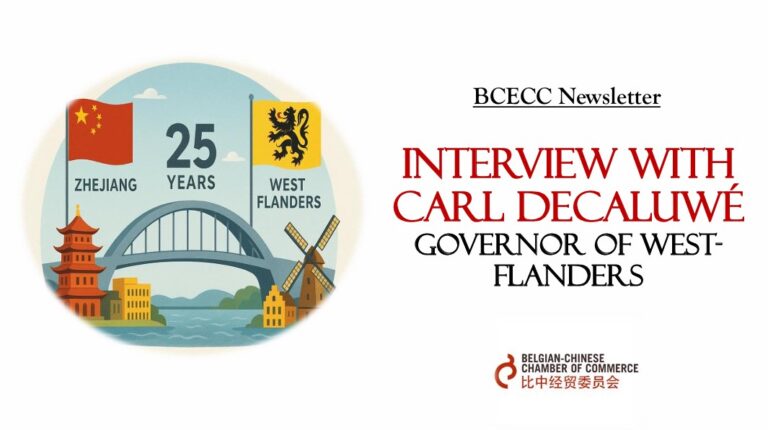The year 2025 marks the 25th anniversary of the sister relationship between the provinces of Zhejiang and the province of West-Flanders in Belgium. The Belgian-Chinese Chamber of Commerce (BCECC) interviewed Mr. Carl Decaluwé, Governor of the Province of West-Flanders.
1.How has this long-standing partnership impacted economic, cultural, and educational exchanges between the two regions? What key milestones stand out?
Zhejiang has grown into one of West Flanders’ most meaningful international partnerships. Over the past 25 years, our collaboration has evolved from formal protocol meetings to deep cooperation in economic and trade areas, and especially in academic exchange and healthcare. A key milestone was the signing of our official sister agreement in 2000, which laid the foundation for everything that followed.
This success is the result of various initiatives, including online exchange projects between secondary schools, student and faculty mobility between colleges and universities, and knowledge sharing in healthcare through internships, study trips, and seminars for medical trainees and specialists.
Moreover, the provinces have promoted applied research between universities, focusing on innovative solutions for a climate-neutral, resource-efficient, and circular economy, supported by industry. This partnership is a powerful example of how regional diplomacy can make a real impact.
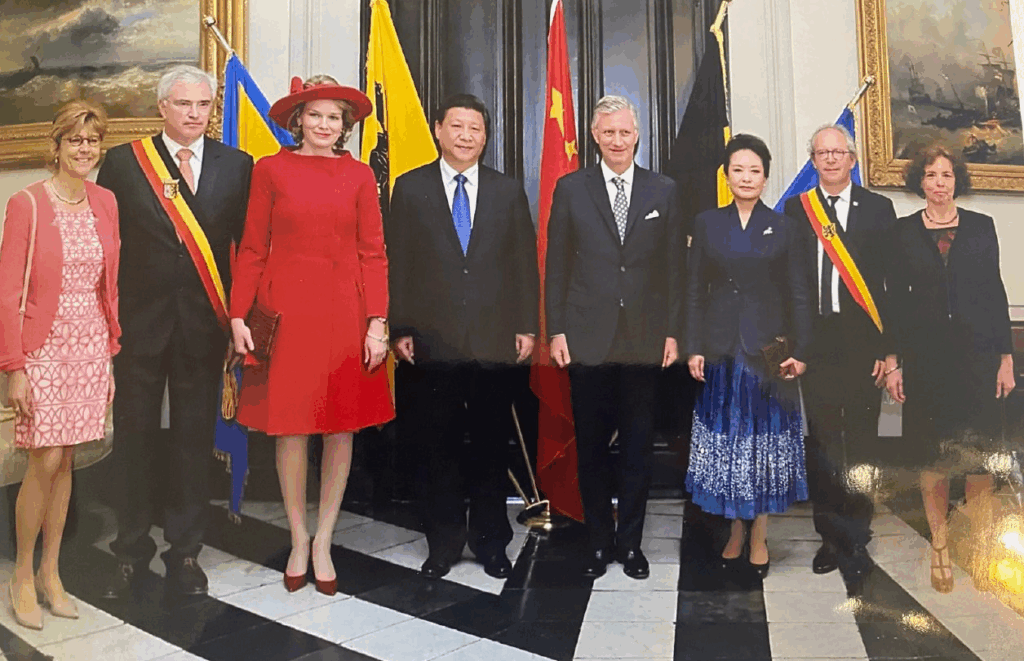
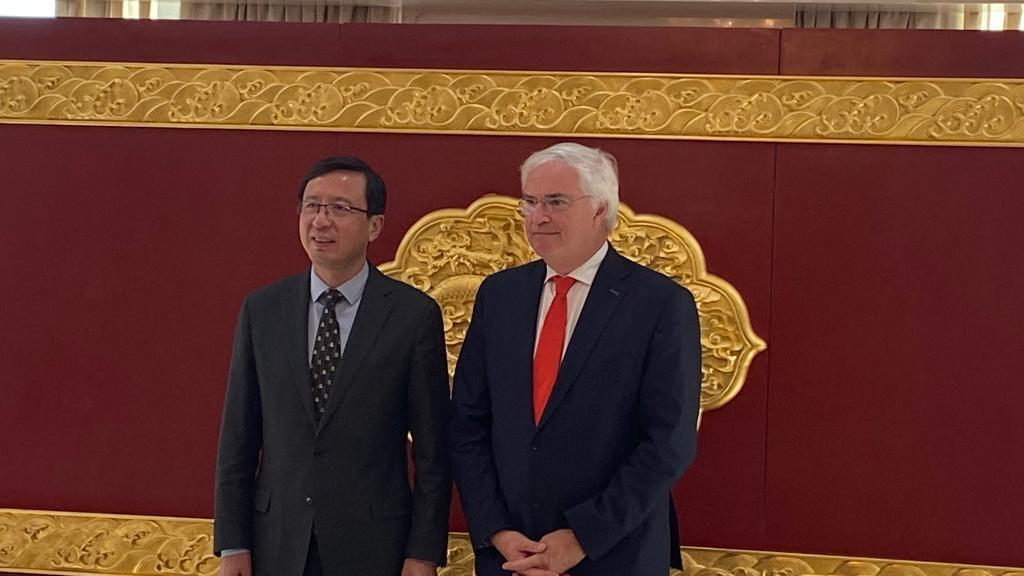
2.Several West Flemish companies have been successful in China. Can you give a few examples and explain the challenges they face, along with the opportunities that still exist today?
Several West Flemish companies have achieved significant success in China. Industry leaders such as Bekaert, Picanol, Barco, Vandewiele, and many others have established a strong and lasting presence in the Chinese market. These companies embody the core strengths of West Flanders: technical innovation, reliability, and a long-term vision. They have invested in local talent, adapted to evolving market trends, and built solid partnerships with Chinese counterparts.
Nevertheless, doing business in China comes with its challenges. Regulatory complexity, differences in corporate culture, and ongoing concerns about intellectual property protection remain key hurdles. Despite these obstacles, substantial opportunities persist—especially in sectors aligned with China’s strategic priorities, such as clean energy, the circular economy, smart manufacturing, and high-tech agriculture. For West Flemish SMEs with a clear and focused approach, China continues to be a highly promising market.
Moreover, our ports play a vital role in trade with China. For instance, the port of West Flanders (Antwerp – Bruges) maintains strong connections with Zhejiang’s port of Ningbo, facilitating robust import-export activities. Many West Flemish companies export to China, including important players in the pork sector such as Westvlees and Danis, who contribute significantly to bilateral trade.
Looking ahead, companies like Claerbout are set to deepen these ties by establishing a business presence in Beijing, illustrating the ongoing commitment of West Flemish enterprises to grow and innovate within the Chinese market. Similarly, CFL, a Taiwanese-West Flemish company, continues to grow steadily in China, benefiting from the strong foundation of bilateral cooperation and cross-border partnerships.
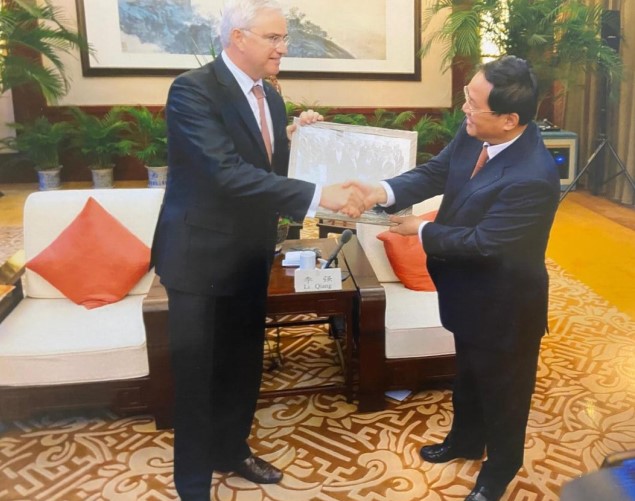
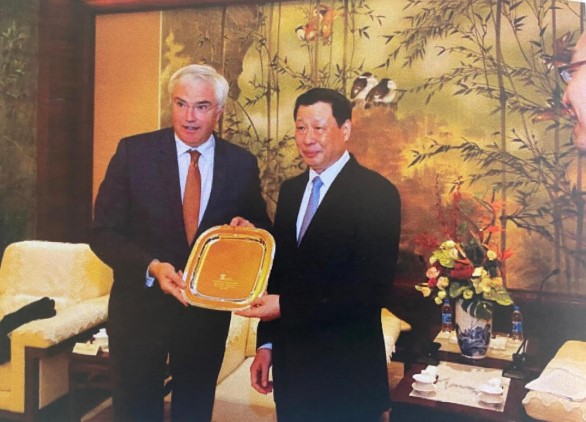
3.You have served as Governor of West Flanders since 2012. From your perspective, how has China changed over the past decade?
China’s transformation has been nothing short of remarkable. From infrastructure and urban development to digital innovation and environmental policy, the country has made enormous strides forward. Cities once considered second-tier have blossomed into vibrant centers of commerce and innovation. What I find particularly impressive is the ambition: a long-term vision driving development—whether in green energy, artificial intelligence, or industrial modernization. At the same time, China’s role on the world stage has expanded significantly, bringing new opportunities as well as new responsibilities for global engagement.
China is a country with a fascinating history dating back to prehistoric times. Over thousands of years, it has experienced a dynamic succession of dynasties, each contributing uniquely to the development of Chinese culture, society, and politics. This long and complex history includes a wealth of events, such as the construction of the Great Wall and the flourishing of the Silk Road.
Chinese philosophers have shaped culture and society across much of today’s world—from Lao Tzu’s teachings on living in harmony with nature to Confucius’s ethical values. With ancient inventions like the compass, gunpowder, paper, and printing, China has profoundly influenced the world.
In recent decades, China has undergone an extraordinary transformation. Since 1978, the country has enjoyed unprecedented growth, averaging over 9% annually. It has lifted more than 800 million people out of poverty—a feat rarely matched. In less than fifty years, China has developed from a land of widespread poverty and economic isolation into the world’s second-largest economy and a leading player in advanced technologies.
China’s influence now spans the globe, with ambitious initiatives such as the Belt and Road Initiative, which positions China as a major lender to developing countries. The rise of China marks one of the most remarkable chapters in modern history—a nation that combines deep historical roots with a bold vision for the future.
4.You have visited China many times. Could you share some memorable anecdotes from your visits? What makes these visits special — then and now?
Each visit to China brings new insights, but what stays with me most are the human connections. I vividly remember the celebration of Ferdinand Verbiest in Beijing, a historical figure who embodies the long-standing connection between our regions. During the ceremony, the Flemish march was performed on traditional Chinese instruments — a beautiful blend of East and West. It was there that our colleague from Zhejiang made a heartfelt appeal for greater cooperation, mutual respect, and deeper understanding between our peoples.

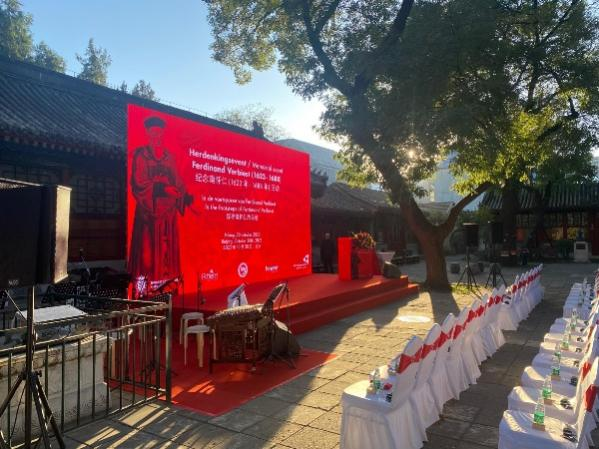
These moments remind us that beyond trade and diplomacy, it is genuine cultural exchange that builds lasting bridges between regions and communities.
In recent years, I’ve also been struck by the pace of digitalization — from smart cities to mobile payment systems. But beyond the technological advances, it’s the warmth of the welcome, the mutual respect, and the consistency of our dialogue that make every visit meaningful.
5.The BCECC has many Belgian SME members active in or exploring China. What advice would you offer them?
My key advice to Belgian SMEs is to enter the Chinese market with careful preparation and a clear long-term strategy. China is not just a market — it’s a vast, fast-changing ecosystem with its own unique dynamics. Success requires more than a good product; it demands a strong grasp of local culture, business practices, and regulatory frameworks. Take the time to build meaningful relationships, earn trust, and adapt your offering to the expectations and needs of Chinese consumers and partners.
Patience and persistence are essential. Rather than chasing quick wins, aim for steady, sustainable growth built on reliable local partnerships and mutual understanding. Above all, make the most of the strong support network available to you — including the BCECC, Flanders Investment & Trade (FIT), the China Office of West Flanders, and our diplomatic missions. These institutions offer valuable guidance, open doors, and help you navigate the complexities of doing business in China.
6.Zhejiang is one of China’s most developed provinces. What makes it especially attractive or relevant to Belgian entrepreneurs?
Zhejiang combines economic dynamism with a strong commitment to innovation. It’s home to global names like Alibaba and Geely, but also boasts a vibrant SME ecosystem — making it a good match for Belgian companies. The province’s proactive government, support for sustainable development, and openness to international cooperation are real advantages. In addition, its coastal location and excellent infrastructure make it a gateway to Eastern China. For Belgian entrepreneurs seeking a foothold in China, Zhejiang is an ideal choice – one of China’s most advanced and entrepreneurial provinces — a region where economic dynamism goes hand in hand with a strong commitment to innovation. It’s home to global players like Alibaba and Geely, yet also supports a thriving ecosystem of SMEs, making it a particularly strong fit for Belgian companies.
What sets Zhejiang apart is not only its economic strength, but also its forward-looking mindset. The provincial government is known for its proactive policies, openness to international cooperation, and strong support for sustainable development and innovation. Its strategic coastal location, world-class logistics, and connectivity make it a natural gateway to Eastern China’s vast market.
What makes Zhejiang especially relevant for Belgian entrepreneurs is the strong and trusted relationship our regions have built over the past 25 years. Thanks to this longstanding partnership, we’re able to offer Belgian businesses targeted support and a warm welcome. Whether through our government contacts, academic networks, or trade platforms, we can help companies navigate the local landscape and seize the right opportunities with confidence. For any Belgian entrepreneur looking to establish a foothold in China, Zhejiang stands out as a reliable, forward-thinking, and well-connected partner.

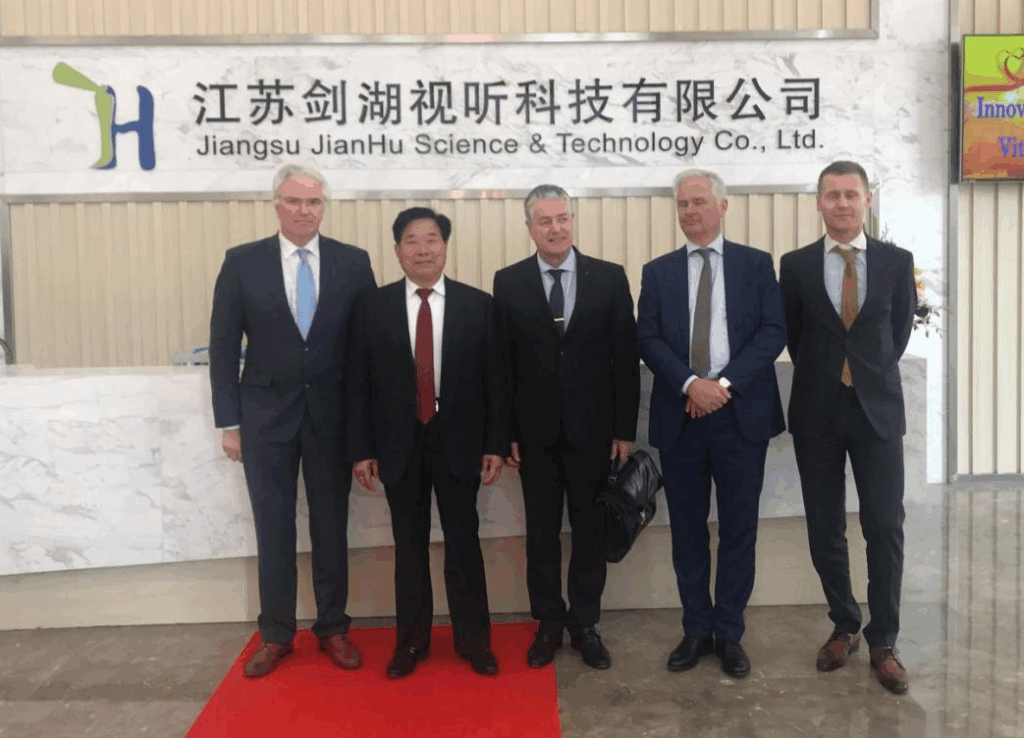
7.The BCECC also has many Chinese members. Why should Chinese businesses consider investing in West Flanders or working with West Flemish partners?
West Flanders offers Chinese companies a unique combination of strategic access, industrial strength, and trusted long-term partnerships. Located at the heart of Europe — between Paris, the Ruhr area, and London — and playing a crucial role as a post-Brexit gateway between the EU and the UK, our province provides seamless logistical access to European and global markets. The Port of Zeebrugge, with direct maritime links to Asia and strong ties with COSCO Shipping, is a key asset in that connectivity.Our economy is built on internationally recognized sectors, including innovative manufacturing, agri-food processing, industrial machinery, smart textiles, and the blue economy. West Flemish companies are known for blending craftsmanship with cutting-edge technology to deliver high-quality, export-driven products. They are globally minded, reliable, and driven by long-term value creation.
Chinese businesses will find in West Flanders a stable, multilingual, and business-friendly environment, supported by future-proof infrastructure and a strong culture of international cooperation. Our long-standing relationship with Zhejiang Province creates a solid foundation for trusted exchange and collaboration — supported by the Province of West Flanders, the China Office West Flanders, and a shared commitment to innovation and sustainability.
In short, West Flanders is not only strategically located — it is strategically aligned with China’s ambitions in smart growth, global expansion, and high-tech industry. We are ready to connect, collaborate, and shape the future — together.
8.Given the current geopolitical tensions between China and the West, how do you view the future of regional partnerships like the one between West Flanders and Zhejiang? What role can they play in fostering dialogue and understanding?
This is a crucial question. In an era of growing geopolitical tension, regional partnerships like the one between West Flanders and Zhejiang are more relevant than ever. They serve as stable, pragmatic platforms for dialogue, cooperation, and mutual respect — even when international relations are under pressure.
Our 25-year relationship with Zhejiang is not just symbolic; it is rooted in trust, continuity, and shared ambitions. We’ve worked together on tangible projects in education, healthcare, economy, and innovation — and these people-to-people and institution-to-institution connections foster resilience against political volatility.
Such regional diplomacy often happens beneath the radar, but it builds bridges where they matter most: between individuals, institutions, and generations. By focusing on what unites us — shared challenges, innovation, sustainable development, and cultural exchange — we help create a foundation for long-term understanding. In that sense, our partnership is not only a success story of the past, but a hopeful model for the future.
Please contact the Belgian-Chinese Chamber of Commerce (BCECC) in case you need more information.

